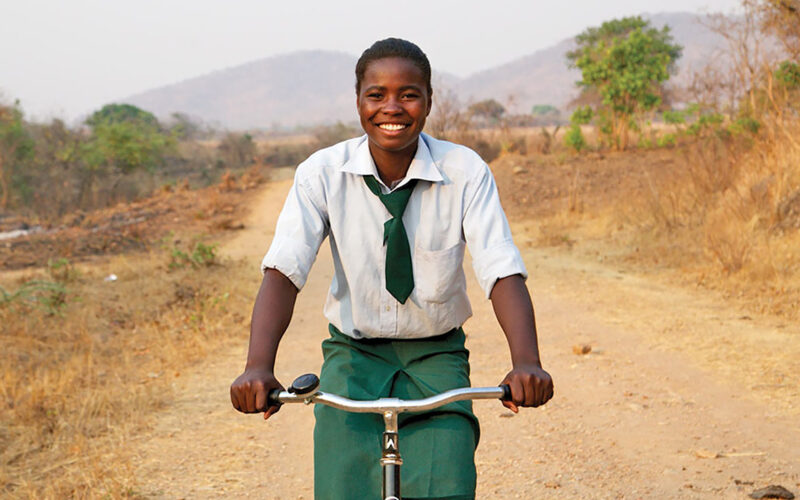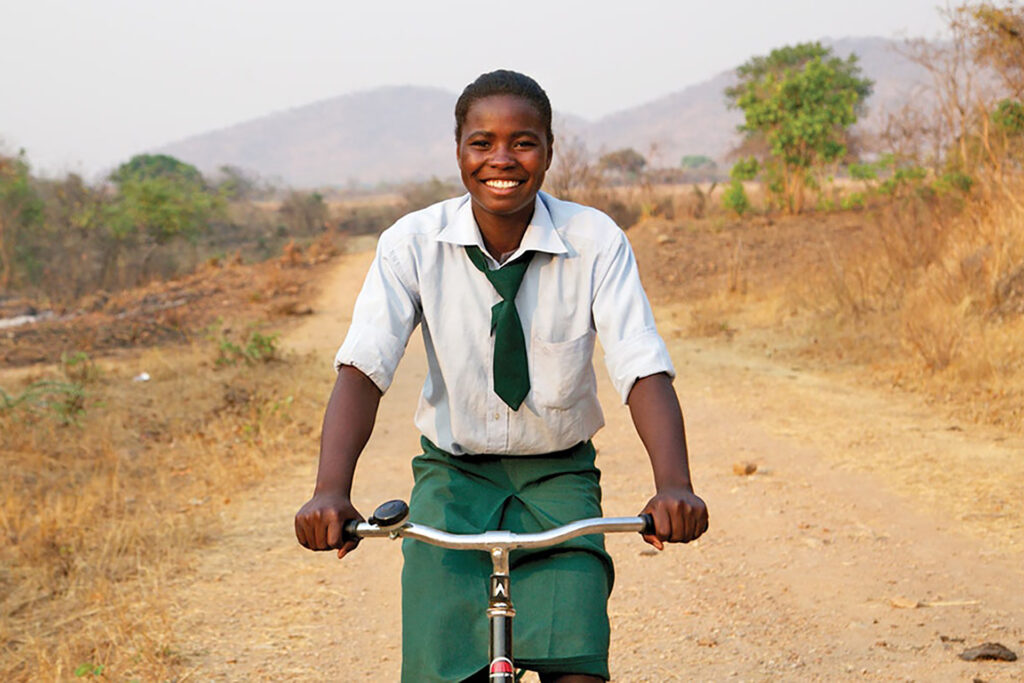Let’s celebrate women on International Women’s Day
I know a few people who think that International Women’s Day is unnecessary and even sexist, but I think there is a need for all people to reflect on the unequal treatment women receive in many spheres. If we didn’t need to take affirmative action for women, there would be no Women’s Coordinator at my cycling club, Minister for Women in our governments, or Cycling Alliance to represent female cyclists. So I’m advocating for support of International Women’s Day, to focus on discrimination, but also to celebrate women.
I’ve written quite a few posts about the role that bicycles have played in women’s lives and how the humble bike has helped their plight. Here are a few highlights that stand out for me, that I think symbolise what International Women’s Day is all about.
A symbol of the suffragettes
The feminist in me also loves the role that bicycles played in the gaining of women’s rights. One hundred years ago, Alice Hawkins, a suffragette, cycled around Leicester in England promoting the women’s rights movement, causing outrage by being one of the first ladies to wear pantaloons in the city. During the fight to win the vote, the bicycle became not only a tool but also a symbol for the emancipation of women.
And of course, everyone’s favourite quote which I’ve read many, many times from the American civil rights leader, Susan B Anthony, who wrote in 1896:
“I think [the bicycle] has done more to emancipate women than any one thing in the world. I rejoice every time I see a woman ride by on a bike. It gives her a feeling of self-reliance and independence the moment she takes her seat; and away she goes, the picture of untrammelled womanhood.”
World Bicycle Relief changing women’s lives
I first came across the charity World Bicycle Relief almost 10 years ago when I was reading the forward of a book. I was immediately impressed by what the charity achieves in developing countries.
WBR doesn’t just hand over bicycles, it trains people to be mechanics so that the bikes can be maintained. They also designed a rugged bike that could withstand harsh conditions.
As a result, women’s lives are changed because they can now work, get to medical appointments, take their children to school, and more.
Read the inspiring story of Alice in Uganda in my previous post.
Female cyclists fleeing the Taliban
As soon as the Taliban took control of Afghanistan in 2021, media reports started coming through about women who had dared to share some equality with their male counterparts, fleeing at pace. I read about judges and athletes, but the story that touched me the most was the female cyclists.
According to a story, I read “In the past decade, Afghan women cyclists boldly showed that women belong on bikes. They were honoured as National Geographic Adventurers of the Year. They were nominated for the Nobel Peace Prize. Now, they are hiding, they are fleeing, they are burning their kits, they are destroying any evidence that links them to the cycling culture.”
Read the full article here.
Nancy Wake’s 400 km in 72 hours
The story of Nancy Wake is not so much about emancipation but amazing courage.
In Peter Fitzsimons’ book Nancy Wake he recounts a tale of Nancy riding a round trip of 400 km over mountainous terrain from Auvergne to Châteauroux. She needed to re-establish contact with London after her radio operator, expecting capture, burned the code books. She took responsibility because she felt that, as a woman, she had more chance of passing through the checkpoints.
Some thought it was simply beyond Nancy’s physical capabilities to cycle but she knew that her sex was an enormous advantage because the German soldiers were less likely to stop an attractive woman who looked like she was riding through her local village. Nancy found an attractive outfit and did her hair and makeup and headed off. She even had to commandeer a bike for the journey but as you can imagine it would have been a heavy upright style bike with few or no gears.


